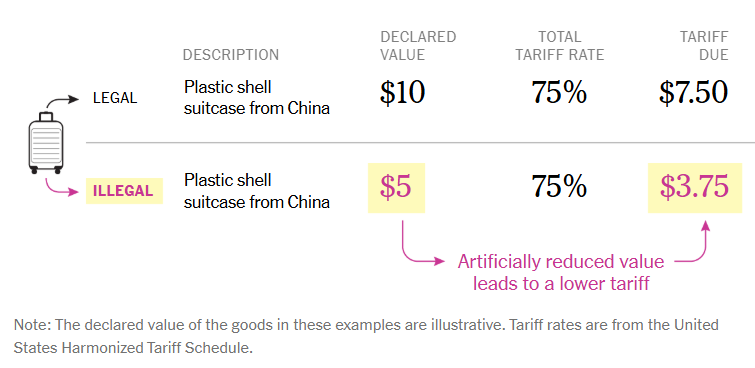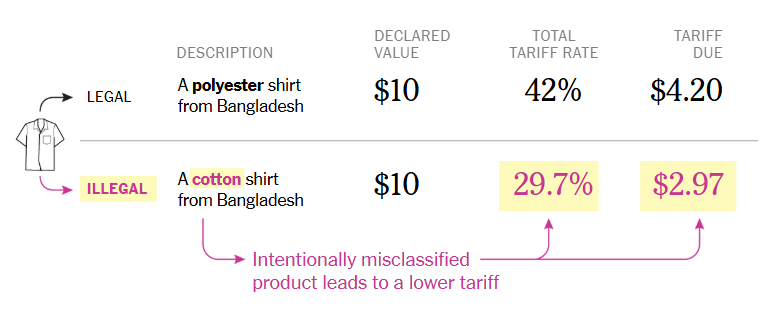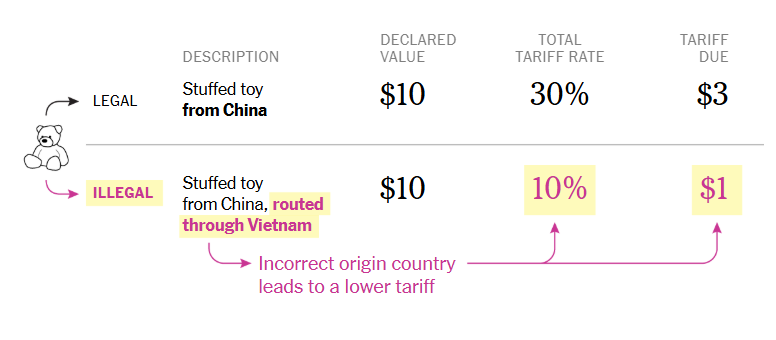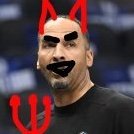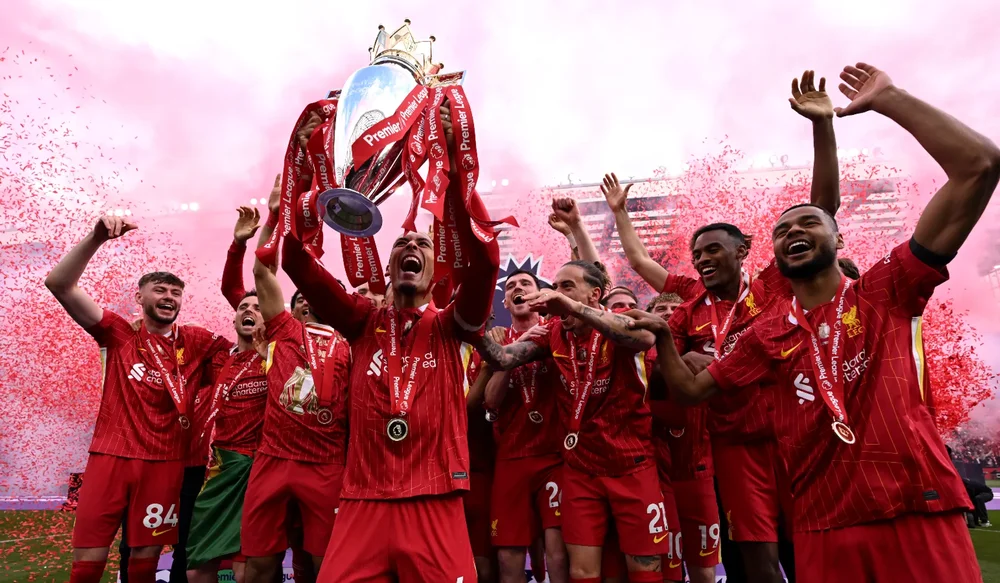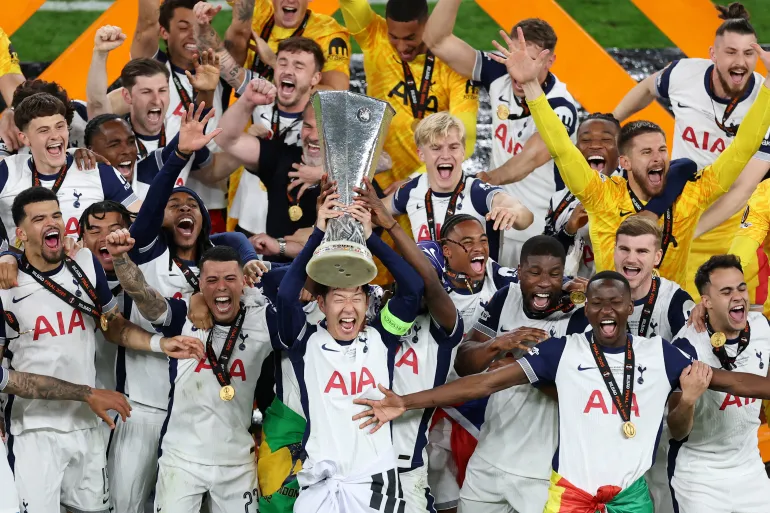Search the Community
Showing results for 'we are going to win'.
-
Going to have to win 3 straight if we want the super regional
-
Long way to go. Hopefully Grubbs settles in and we break it open again. But yeah you have to do everything to win this one.
-
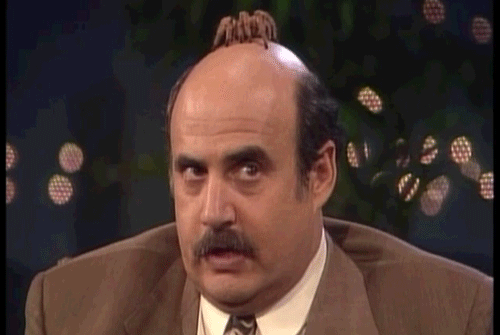
The Way Too Early 2028 Democratic Presidential Candidate Thread
Hank Kingsley replied to Bullneck's topic in Cloak Room
Here's gonna be my disconnect with the people who just want a "straight white male" to be the candidate. Yes, maybe it's an easier way to win the Presidency back and get Trump out of office. Maybe. But then what? The MAGA disease has already spread to every organ at this point in our country. A boring, safe, paint by numbers Presidency is not the cure. We tried that with Biden, it didn't work. We are going to need a reinvigorated Presidential administration that is extremely proactive with big and bold policies that they can push through ASAP. Basically, go big or go home. -
Disappointing finish. Not ready to get into all of the post season stuff yet, but did watch Deboer's press conference and kind of hated it. If there was ever a time for just BS coach speak it was then. He was clearly beyond frustrated with his team's performance but you can't drive a wedge between your franchise goalie. Pulling him, deserved or not, right move or not, was plenty without the additional comments. Jake wasn't good enough this series but he was crucial in winning the first 2 series. Also, a lot of the guys in the room he was bashing won't be there. The time for that kind of messaging is training camp with a new team IMO. One thing I think is becoming clear is it really helps if you can finish off an early series in 4 or 5. We just looked more tired across the board and Jake played more games than any other goalie in the playoffs to date and it showed on him. I wonder if this team could have given Edmonton a better shot if we didn't get such a difficult first round opponent both years that took all 7. Regardless, absolutely deserved to lose this series. Lots to unpack for post-season but probably going to take a couple of weeks before I start reading all of that. Also, not going back and reading all post game hot takes, but if someone actually said Fire Nil that is just about the dumbest fucking take I've seen in a Stars thread. JFC.
-
And that right there was the thesis of my longer post above. For what most of us look for in a bbq joint -- the trinity of brisket, sausage, and ribs -- there are easily 50-75 places in Texas that serve a plate of those that ranks a 9.5 outta 10 or better. Again, yeah, any place can have an off day, but they turn out product that would have been "the best thing I ever ate" 25 years ago. Now, we're spoiled. I'm serious, you can go to the Black's location by campus and get a plate of BBQ at lunch that you would have been telling your friends about 25 years ago (yes, there are plenty of places that are "better," but again....we're arguing about whether it's a 9.5 or a 10). Now, it's just another easy lunch spot. So, yeah, deciding how to rank places has to turn to more esoteric things. Which is fine. But it's also a bit silly. We're down to arguing the ranking of supermodels based on which ones have the best mole and freckle placement. Who gives a shit? They're all some variation of a 9.9 or better. Take home the 10th ranked supermodel, and you're still spending the night with one of the hottest women on the planet. I'm dead serious, I'm thrilled with a plate of sliced brisket and a link of sausage from Black's on Guadalupe for lunch. It's top-notch barbecue....and the fact that there are 100 other places like it/that are just as good or better doesn't denigrate Black's, it tells us that we live in glorious times. What was once rare (great barbecue) is now ubiquitous. Looking down your nose at those places is like looking down your nose at Gisele Bundchen with a "knees are too pointy, would not bang" comment. It's just stupid. I can walk into any one of 10 places in this town and get barbecue in 10-15 minutes that I would have had to drive to or wait in line forever for even 10-15 years ago. Winning.
-
Huh? Would have been nice to win, but still a half game behind Seattle with a shit load of injuries to the starting pitching and Alvarez had yet to decide if he is going to play this year or not so all things consider about where we were yesterday.
-
Winning today was always the goal - either we are in the semifinals on Monday or we go cruise through the weaker bracket. Losing today was the nightmare scenario of not being able to climb out of the SEC murderer's row side of the bracket. Plus TK gets to sit and chill tomorrow, instead of trying to win back to back days to stay alive.
-
Would be a dream if OU loses this game. Puts them against Florida, which is their kryptonite. Also puts us in a position where, if we win, we only have to win 1 of the next 2 games to go the finals. And if we lose, we are on the weaker side of the bracket and would have a great chance to make a title run from there (with no OU or Tenn to deal with until the finals).
-

2025 NHL Playoffs Thread - Let the madness begin!
NCMountaineer replied to Longhorn_Fan68's topic in Other Sports
really thought they were going to push it to a game 6 after how things started last night. Florida is just a frigin wagon at this point. either way not bad for a re-tool season. Spend that 30M in cap space heading into next season correctly and we might actually win 2 games in the ECF or something. -
What did Katie C do to Mike? Besides lay down the most perfect clutch sac bunt in the 10th inning of a super regional game that we had to win Unless we are going for more speed and create chaos
-
It just sucks that the West is so damn loaded at the exact same time. We've had to play 2 teams with top 5 players in the NHL. The central is the toughest division in hockey. Healthy MN is really good and gave Vegas all they could handle (and but for being a centimeter offsides probably win that series). Blues pulled defeat from the jaws of victory against the Jets. It's just a really hard conference to win. I think this team is a lot better than our WCF team from 2 years ago and I still think that team beats Vegas if we pull out either of those first 2 in Vegas. The first we were outplayed but lost in OT. I was at Game 2 in Vegas and we had it won until Suter fucked up to give up the tying goal with a couple of minutes left and then we lost again in OT. Then Game 3 was the Benn debacle and we still got that series to 6. That Vegas team won the cup and I think the Vegas team we beat in round 1 last year was better than their cup team. I think this team (now healthy) is the best team we've had on paper during the past 3 years but we haven't made plays this round. It's not over. Maybe I'm being a homer but it's not going to shock me at all if this goes 7. Just string a few plays together, get some confidence, and we could easily grab momentum back and make this a series.
-
Just to go back to the stupid Ohio State argument that Texas is scared to play in the Horseshoe! At night! Because more articles came up on my feed this morning, especially after Del Conte addressed it at the SEC meetings yesterday. A few points: 1) Ohio State/Big Ten agreeing to the massive television contract with Fox, CBS, and NBC is the principal issue here. Not Texas. They love to crow about how much bigger their contract is compared to everyone else. Well, the golden rule applies, boys. He who owns the gold makes the rules. Welcome to noon kickoffs, Buckeyes. Don't like it? Too bad. You signed the dotted line. No one forced you. You're the sacrificial lamb for the rest of the conference because you're the biggest draw, especially when Michigan has a down season. Tough titties. 2) Ohio State fans and Texas haters, plus click bait artists, love to project fear on Texas for not wanting to play in The Horseshoe! At night! But that's not it at all. If Ohio State was playing almost any other program, they'd readily move the game to Sunday night. Why? Because nearly every program in the country is desperate for more exposure, and would sell out living relatives to garner an exclusive prime time nationally broadcast window on a Sunday night. Forget about the consequences. But Texas doesn't need prime time exposure. We'll get plenty of prime time games this year, because we're Texas, and we're not saddled with an albatross of a television agreement with Fox like we were in the Big 12. Sucks to be you! What people are enjoying ascribing to fear, is actually arrogance. Ohio State is desperate for a prime time game at home. Texas is not desperate for prime time exposure. We don't need it. We don't have any reason to move the game to Sunday. It creates issues further down the line. So what if San Jose State is not the most fearsome opponent on the schedule. Sarkisian wants to establish the season's rhythms as soon as possible. It doesn't matter how much of a difference it makes on the win/loss schedule. Our program priority is winning a national championship. Moving the opening game to Sunday night puts us further from that goal, regardless of how much impact it has. It has some impact. How much is hypothetical, but it's also entirely unnecessary. I remember years when that wasn't the case. When the athletic department would schedule games with Hawaii simply to have an excuse to take the entire athletic department on a paid trip for them and their families, never mind the negative impact it would have on the players and team. One of the best moves Mack Brown made early on was to cancel that silly boondoggle. He got the same kind of grief about Texas being scared to play a Hawaii team that was going to be terrible after losing their entire roster. Ohio State is going to be good. They're literally always good. They don't really have down years or bad coaching hires the way everyone else does. But there's no incentive for Texas to do the Ohio State fan base any favors. "Lack of planning on your part does not constitute an emergency on my part." Sort your shit out with Fox. That's not our problem.
- 3140 replies
-
- 27
-

-

-
I wonder if we’ll come up with a fun 21st-century neologism to describe all the various crimes of this new fraud-filled era that we’ve ushered in by the cons in charge, or if the existing ones, such as bootlegging, piracy, smuggling, trafficking, counterfeiting, Ponzi scheming, scamming, thieving, poaching, plundering, or grifting, will suffice. Trade Crime Is Soaring, U.S. Firms Say, as Trump’s Tariffs Incentivize Fraud President Trump’s steep global tariffs have supercharged efforts to evade them. Some U.S. companies say the government is ill equipped to keep up. As President Trump’s tariffs have ratcheted up in recent months, so have the mysterious solicitations some U.S. companies have received, offering them ways to avoid the taxes. Shipping companies, many of them based in China, have reached out to U.S. firms that import apparel, auto parts and jewelry, offering solutions that they say can make the tariffs go away. “We can avoid high duties from China, which we have already done many in the past,” read one email to a U.S. importer. “Beat U.S. Tariffs,” a second read, promising to cap the tariffs “at a flat 10%.” It added: “You ship worry free.” “Good News! The tariffs has been dropped finally!” another proclaimed. The proposals — which are circulating in emails, as well as in videos on TikTok and other platforms — reflect a new flood of fraudulent activity, according to company executives and government officials. As U.S. tariffs on foreign products have increased sharply in recent months, so have the incentives for companies to find ways around them. The Chinese firms advertising these services describe their methods as valid solutions. For a fee, they find ways to bring products to the United States with much lower tariffs. But experts say these practices are methods of customs fraud. The companies may be dodging tariffs by altering the information about the shipments that is given to the U.S. government to qualify for a lower tariff rate. Or they may move the goods to another country that is subject to a lower tariff before shipping them to the United States, a technique known as transshipment. The Trump administration said this month that it would focus more on fighting trade fraud, including tariff evasion. The administration is also trying to persuade other countries to step up their own enforcement efforts, including in trade talks with Vietnam, Mexico and Malaysia. But many American companies say the scale of illicit activity now far outweighs the ability of these governments to thwart it. These schemes are costing the U.S. government billions of dollars in tariff revenue annually, executives and officials say. And they are leaving honest companies that pay tariffs deeply frustrated and worried about being left at a financial disadvantage to dishonest competitors. “If nothing is done, those willing to cheat are going to continue to win the day here,” said David Rashid, the executive chairman of Plews, a car parts company that has appealed to the government to crack down on unfair trading practices by its competitors. Mr. Rashid said that unfairly traded products had filtered into supply chains throughout the United States. “It’s easy to pull the wool over people’s eyes, especially if people like the wool over their eyes,” he added. Continued (free link): https://archive.is/7NTa4
-
Trumpism has ushered in an era of corruption, fraud, and lawlessness across the board. We’re living in a Mobland, ruled over by the ultimate con artist and his incompetent capos, inspiring a horde of scammers, fraudsters, liars, cheats, thieves, grifters, and various other ne'er-do-wells to rob you fucking blind. Someone, help me find a Tommy gun, trench coat, and fedora. Trade Crime Is Soaring, U.S. Firms Say, as Trump’s Tariffs Incentivize Fraud President Trump’s steep global tariffs have supercharged efforts to evade them. Some U.S. companies say the government is ill equipped to keep up. As President Trump’s tariffs have ratcheted up in recent months, so have the mysterious solicitations some U.S. companies have received, offering them ways to avoid the taxes. Shipping companies, many of them based in China, have reached out to U.S. firms that import apparel, auto parts and jewelry, offering solutions that they say can make the tariffs go away. “We can avoid high duties from China, which we have already done many in the past,” read one email to a U.S. importer. “Beat U.S. Tariffs,” a second read, promising to cap the tariffs “at a flat 10%.” It added: “You ship worry free.” “Good News! The tariffs has been dropped finally!” another proclaimed. The proposals — which are circulating in emails, as well as in videos on TikTok and other platforms — reflect a new flood of fraudulent activity, according to company executives and government officials. As U.S. tariffs on foreign products have increased sharply in recent months, so have the incentives for companies to find ways around them. The Chinese firms advertising these services describe their methods as valid solutions. For a fee, they find ways to bring products to the United States with much lower tariffs. But experts say these practices are methods of customs fraud. The companies may be dodging tariffs by altering the information about the shipments that is given to the U.S. government to qualify for a lower tariff rate. Or they may move the goods to another country that is subject to a lower tariff before shipping them to the United States, a technique known as transshipment. The Trump administration said this month that it would focus more on fighting trade fraud, including tariff evasion. The administration is also trying to persuade other countries to step up their own enforcement efforts, including in trade talks with Vietnam, Mexico and Malaysia. But many American companies say the scale of illicit activity now far outweighs the ability of these governments to thwart it. These schemes are costing the U.S. government billions of dollars in tariff revenue annually, executives and officials say. And they are leaving honest companies that pay tariffs deeply frustrated and worried about being left at a financial disadvantage to dishonest competitors. “If nothing is done, those willing to cheat are going to continue to win the day here,” said David Rashid, the executive chairman of Plews, a car parts company that has appealed to the government to crack down on unfair trading practices by its competitors. Mr. Rashid said that unfairly traded products had filtered into supply chains throughout the United States. “It’s easy to pull the wool over people’s eyes, especially if people like the wool over their eyes,” he added. cont'd
-
Pretty, pretty, pretty good for season for Arne and the boys. Now we enter summer number 2 with Edwards and co fully weaponized with the backing of FSG. Big Dick Hughes got VVD and Mo resigned, hopefully Ibou as well in the next couple weeks. Looks like we should have 2 almost certain and 1 strongly linked in the next 10 days (Frimpong, Wirtz, Kerkez) with more wheeling and dealing after that. Even more than winning the league with a month to go Slot put world football on notice by closing Wirtz on his vision ahead of Pep and Kompany/Bayern. We haven’t repeated as league champs in 40 years; This is the time to do it. And add the CL double this time around.
-
There will be an ‘embarrassing’ issue with customs / immigration that gets reported and then forgotten. Trump and Vance will go to an early stage game where the US has a chance to win. They’ll get booed. The US won’t make it to the KO round. Trump will blame Biden and DEI and Democrats while shitting on soccer in a Truth and during an executive order signing about amputating thieves hands for stealing anything over $2 on their plane ride to the new private prisons we’ve set up in the Syrian desert. And then we all forget the World Cup happened at all when Trump removes the Census and just assigns congressional seats based on Trump library donations. Remember when he got the Qataris to give him a plane bribe, only to put the American public on the hook to upgrade for like a billion dollars with the full intention to personally take it when he ‘leaves’? Man that feels so long ago.
-
I'm not going to stop watching it. I enjoyed a lot of this season, but did not like the finale at all and don't like the direction things are heading, and that is before I found out the first 3 episodes of S3 are going to be from Abby's perspective. This show is clearly not following a typical roadmap and following the video game and it's cool and interesting to do things in an unorthodox style every once in awhile. We don't need to have a straightforward linear plot with clear protagonists and antagonists. That said I really am starting to feel a bit lost with the way Ellie has been portrayed and the interjecting of other random characters who within two episodes of being introduced are now making you wonder if they are the new main character. I'm a child of the 80s so I definitely skew to the side of having a plot arc of good vs bad and good wins but at this point I would love to see the series end in this fashion. Ellie stops acting like a dumbass 10 year old and bosses up. She kills Abby or doesn't, I don't really care. The WLFs and the Scars kill each other I don't care. Dina dies or doesn't, I don't care. Dina's baby carries immunity/the cure. Ellie and Tommy team up and kill the zombies. Party in Jackson Hole. I do not need 3 episodes in the mind of Abby, a character who seems like she was invented halfway through this season. Whatever, we'll see where it goes in 2042 when the next season airs and we can all complain about why Ellie aged 24 years in 17 years.
-
Lost 3 straight - go win 3 straight. We have home ice. Tonight was close. It's hockey. G6 in Edmonton feels unwinnable but let's just take care of business Thursday and take it from there. Seen too much Stars magic the past 5-6 years to call this series.
-
2 PP goals and 2 empty netters. yep. but Dallas ain't getting that call. can't take a chance on something happening. Benn's trip wasn't even that bad and he was going into the boards anyway. this was right in the middle of the play in open ice. we need to go down if any stick hits a skate. it really doesn't matter though McDavid on our team we win in 4 worst case 5. McDavid on EDM we lose in 5 or 6. Skinner isn't doing anything special IMO. he's playing well but we really don't tax him. we are hoping for puck luck.
-
We got cut to ribbons, we’re just not crying about it. We took our lumps and kept going. In the end… and I said it before Ange went all in on Europa, he sat a lot of starters in the EPL season to win the trophy. That’s not an excuse, that prioritizing.
-
March 4, 2023. Speech to the Conservative Political Action Conference in National Harbor, Maryland. “Before I even arrive at the Oval Office, I will have the disastrous war between Russia and Ukraine settled. It will be settled quickly. Quickly. I will get the problem solved and I will get it solved in rapid order and it will take me no longer than one day. I know exactly what to say to each of them.” March 25, 2023. Rally in Waco, Texas. “And before I even arrive at the Oval Office, shortly after I win the presidency, I will have the disastrous war between Russia and Ukraine settled.” And: “So when I say ‘end it,’ I’m going to get a settlement very quickly. And I know both people, and you can get it very, very quickly. You can only do it through the presidency, but you control the money coming in, coming out. You can get that. I will have that settlement done within 24 hours.” April 21, 2023. Speech to Republican dinner in Fort Myers, Florida. “Before I even arrive at the Oval Office, shortly after we win the presidency, I will have the horrible war between Russia and Ukraine settled. I’ll get it settled very quickly. I know both; I know Zelensky and I know Putin.” April 27, 2023. Rally in Manchester, New Hampshire. “Before I even arrive at the Oval Office, shortly after I win the presidency, I will have the horrible war between Russia and Ukraine settled.” May 10, 2023. CNN town hall in Goffstown, New Hampshire. Trump: “If I’m president, I will have that war settled in one day, 24 hours.” CNN’s Kaitlan Collins: “How would you settle that war in one day?” Trump: “First, I’ll meet with Putin, I’ll meet with Zelensky. They both have weaknesses and they both have strengths. And within 24 hours that war will be settled. It will be over. It will be absolutely over.” June 10, 2023. Speech to North Carolina GOP convention in Greensboro, North Carolina. “Here’s just some of the bold agenda I’ll put into effect when we become the 47th president of the United States. Before I even arrive at the Oval Office, shortly after I win the presidency, I will have the horrible war between Russia and Ukraine settled if it’s not already settled, and they should get it done quickly.” June 24, 2023. Speech to the Faith and Freedom Coalition in Washington, DC. “Before I even arrive at the Oval Office, I will have the horrible war between Russia and Ukraine totally settled. I’ll have it done in 24 hours. I say that, and I would do that. That’s easy compared to some of the things – I’d get that done in 24 hours. I know them both. I know them both. As the Bible says, ‘Blessed are the peacemakers.’ See that? And I will be your peacemaker. I was your peacemaker.” June 27, 2023. Speech to Republican women in Concord, New Hampshire. “I get along with him (Zelensky), get along with Putin, I’d have that war – it would have never happened under me, never ever, would have never happened – but I’ll have that war settled in 24 hours. And it won’t even be a tough one by comparison to other things.” June 30, 2023. Speech to Moms for Liberty in Philadelphia, Pennsylvania. “Before I even arrive at the Oval Office, shortly after we all together win the presidency, I will have the horrible war between Russia and Ukraine settled. It will be done within 24 hours.” July 1, 2023. Rally in Pickens, South Carolina. “Before I even arrive at the Oval Office, shortly after I win the presidency because of you, I will have the horrible war between Russia and Ukraine settled; I’ll get it done in 24 hours. I know them both very well, Zelensky and Putin. I’ll get it solved very, very quickly.” July 7, 2023. Rally in Council Bluffs, Iowa. “Before I even arrive at the Oval Office, shortly after I win the presidency, I will have the horrible war between Russia and Ukraine settled.” And: “I’ll get that done within 24 hours. Everyone says, ‘Oh, no, you can’t.’ Absolutely I can. Absolutely I can.” July 15, 2023. Speech to Turning Point event in West Palm Beach, Florida. “Shortly after we win the presidency, I will have the horrible war between Russia and Ukraine totally settled. We’ll get that settled very quickly.” And: “But this conflict has to end. And when I’m president, it will be done very quickly, I believe in 24 hours.” July 29, 2023. Rally in Erie, Pennsylvania. “Before I even arrive at the Oval Office, shortly after we all together win the presidency, we will have the horrible war between Russia and Ukraine settled. It will be settled. The war is going to be settled. I’ll get them both – I know Zelensky, I know Putin, it’ll be done within 24 hours, you watch. They all say, ‘That’s such a boast.’ It will be done very quickly.” August 4, 2023. Speech to Republican dinner in Montgomery, Alabama. “Before I even arrive at the Oval Office, shortly after we win the presidency, because we are going to win it, I will have the horrible war between Russia and Ukraine settled. I know them both very well, they will settle. Would have never ever happened. It will be done very, very quickly.” August 5, 2023. Speech to Republican dinner in Columbia, South Carolina. “Before I even arrive at the Oval Office, shortly after I win the presidency, I will have the horrible war between Russia and Ukraine settled. I know them both very well. We will get it settled. It should’ve never happened. Should’ve never happened. All the tens of thousands, hundreds of thousands of dead people; the number of people dead is far greater than what you’re hearing – but we will get it settled immediately, and fairly settled.” August 8, 2023. Rally in Windham, New Hampshire. “Before I even arrive at the Oval Office, shortly after I win the presidency, we will have that horrible war between Russia and Ukraine settled. It’ll be settled. I know them both very well. Get it done very quickly, maybe in 24 hours.” September 15, 2023. Speech to Concerned Women for America in Washington, DC. “Before I even arrive at the Oval Office, shortly after I win the presidency, I will have the horrible war between Russia and Ukraine settled.” September 25, 2023. Rally in Summerville, South Carolina. “Before I even arrive at the Oval Office, shortly after I win the presidency, I will have the horrible war between Russia and Ukraine settled. It’s going to be settled. I know them both. It’s going to be settled quickly.” September 29, 2023. Speech to Republican event in Anaheim, California. “Before I even arrive at the Oval Office, shortly after I win the presidency, I will have the horrible war between Russia and Ukraine settled. It’ll get settled very fast.” November 11, 2023. Rally in Claremont, New Hampshire. “Before I even arrive at the Oval Office, shortly after we win the presiden(cy), because we are going to win it, I’ll have the horrible war between Russia and Ukraine settled and which it should have never started.” November 18, 2023. Speech in Fort Dodge, Iowa. “Before I even arrive at the Oval Office, shortly after we win the presidency together, I will have the horrible war between Russia and Ukraine settled. We’re going to get it settled. I know Putin very well, get along with him. I know Zelensky very well.” January 5, 2024. Rally in Mason City, Iowa. “Before I even arrive at the Oval Office, shortly after we win the presidency – it’s going to be us all together – I will have the horrible war between Russia and Ukraine settled. I know them both very well, Zelensky and Putin. I’ll get it settled.” January 17, 2024. Rally in Portsmouth, New Hampshire. “Upon taking office, I will also restore peace through strength. I will get that war in Ukraine settled so fast.” And: “I will get that straightened out very fast, very early. I think – I think I’ll get that finished when I’m president-elect. I think I’ll get it long, long before, long before I take the office.” January 19, 2024. Rally in Concord, New Hampshire. “Before I even arrive at the Oval Office, shortly after we, we, win the presidency, I will have the horrible war between Russia and Ukraine settled. I will get it settled. I know Putin, I know Zelensky very well, I know them both, and we’re going to get it settled. It’s got to get settled.” January 21, 2024. Rally in Rochester, New Hampshire. “I will have the horrible war between Russia and Ukraine settled before I even take office.” January 22, 2024. Rally in Laconia, New Hampshire. “Before I even arrive at the Oval Office, shortly after we win the presidency – we win, we are going to win it together – I will have the horrible war between Russia and Ukraine settled. We’ll get it settled.” January 27, 2024. Rally in Las Vegas, Nevada. “Before I even arrive at the Oval Office, shortly after we win the presidency, I will have the horrible war between Russia and Ukraine settled. I’ll get it done fast. I know them both. And we will restore on this planet peace through earth (sic).” February 14, 2024. Rally in North Charleston, South Carolina. “But before I even arrive at the Oval Office – I will win the presidency – I will be doing things that will be amazing, like I will get the war between Russia and Ukraine settled forthwith. It will be settled very quickly.” February 23, 2024. Rally in Rock Hill, South Carolina. “Before I even arrive at the Oval Office shortly after we – we, we, not me, we – win the presidency, I will have the horrible war between Russia and Ukraine settled, I will get it settled. People dying by the thousands, horrible thing. Under the Trump administration, we will return to peace through strength.” February 23, 2024. Speech to Black Conservative Federation event in Columbia, South Carolina. “Before I even arrive at the Oval Office, shortly after we win the presidency, I will have the horrible war between Russia and Ukraine settled and restore peace through strength.” March 2, 2024. Rally in Richmond, Virginia. “Before I even arrive at the Oval Office, shortly after we win the presidency, I will have the horrible war between Russia and Ukraine settled. I know them both very well. And we will restore peace through strength. Get that war settled, it’s a bad war.” March 2, 2024. Rally in Greensboro, North Carolina. “Before I even arrive at the Oval Office, shortly after we, we, win the presidency, I will have the horrible war between Russia and Ukraine settled, and we will restore peace through strength.” May 1, 2024. Rally in Freeland, Michigan. “Before I even arrive at the Oval Office, shortly after we win the presidency, we win, all of us together are going to win, I will have the horrible war between Russia and Ukraine settled. I know them both. I will get it settled.” May 1, 2024. Rally in Waukesha, Wisconsin. “Before I even arrive at the Oval Office, shortly after we win the presidency – and it’s we all together, it’s we, it’s not me – I will have the horrible war between Russia and Ukraine settled.” May 11, 2024. Rally in Wildwood, New Jersey. “Before I even arrive in the Oval Office, shortly after we win the presidency, I will have the horrible war between Russia and Ukraine settled. I know them both very well.” May 18, 2024. Speech to the National Rifle Association. “Before I even arrive at the Oval Office, shortly after we win the presidency, I will have the horrible war between Russia and Ukraine settled, and we will restore, as we had just four years ago, peace through strength.” June 6, 2024. Interview with Dr. Phil. “I will deal with it, and I’ll get the war in Ukraine settled and done by the time I get to office. As president-elect, I will get it done. As president-elect, you have great power. I was able to do great deals from the time I got elected in 2016. I was able to do great deals from the time I got elected to the time I got to office, in that little – because you have great power there.” June 15, 2024. Speech to Turning Point event in Detroit, Michigan. “I will have that settled prior to taking the White House as president-elect. I will have that settled. Gotta stop it.” June 27, 2024. Presidential debate against then-President Joe Biden. “I will have that war settled between Putin and Zelensky as president-elect before I take office on January 20. I’ll have that war settled. People being killed so needlessly, so stupidly. And I will get it settled, and I’ll get it settled fast before I take office.” June 28, 2024. Rally in Chesapeake, Virginia. “Before I even arrive at the Oval Office, shortly after we win the presidency – we, we win the presidency – I will have the horrible war between Russia and Ukraine totally settled.” July 20, 2024. Rally in Grand Rapids, Michigan. “Before I even arrive at the Oval Office, shortly after we win the presidency – we, we win; we’re going to all win it together – I will have the horrible war between Russia and Ukraine settled.” July 24, 2024. Rally in Charlotte, North Carolina. “Before I even arrive at the Oval Office, shortly after we – we, the people in this room – win the presidency, I will have the horrible war between Russia and Ukraine settled. We’re going to get it settled quickly. I’ll do it as president-elect, I’ll do it.” July 26, 2024. Speech to Turning Point event in West Palm Beach, Florida. “Before I even arrive at the Oval Office, shortly after we win the presidency, I will have the horrible war between Russia and Ukraine settled; I will get it settled, and I will prevent World War III.” July 27, 2024. Rally in St. Cloud, Minnesota. “Before I even arrive at the Oval Office, shortly after we win the presidency – and I say ‘we’ win, we’re winning this together – I will have the horrible war between Russia and Ukraine settled.” August 9, 2024. Rally in Bozeman, Montana. “And before I even arrive at the Oval Office, I will have the horrible war between Russia and Ukraine settled.” August 21, 2024. Rally in Asheboro, North Carolina. “If we win, I’ll get that thing settled before I take the office; I’ll get it settled as president-elect, I’ll get that war stopped. With Russia, yeah, we’ll get that stopped. Ukraine and Russia, we’re going to get it stopped, and quickly. It’ll be done before I get to office.” August 23, 2024. Interview with Shawn Ryan. “I’ve said this before, Shawn: I will have that war settled when I’m president-elect, meaning before I get to office on January 20.” September 7, 2024. Rally in Mosinee, Wisconsin. “But this whole Russia thing: nobody was tougher on Russia, in history, than Trump. And the person that knows that better than anyone is President Vladimir Putin. He knows it better than anyone. And I’ll tell you what: I will have that war finished and done and settled before I get to the White House. As president-elect, I will get that done.” September 10, 2024. Presidential debate against then-Vice President Kamala Harris. “…I want to get the war settled. I know Zelensky very well, and I know Putin very well; I have a good relationship, and they respect your president, play? They respect me. They don’t respect Biden. How would you respect him? Why? For what reason? He hasn’t even made a phone call in two years to Putin. He hasn’t spoken to anybody. They don’t even try and get it. That is a war that’s dying to be settled. I will get it settled before I even become president. If I win, when I’m president-elect. And what I’ll do is I’ll speak to one, I’ll speak to the other, I’ll get them together.” September 19, 2024. Interview with Newsmax. “So, hopefully, we’re going to win the election. We’re going to get it all changed. I’ll get that war settled before I even become president. I will get it settled while I’m president-elect.” October 1, 2024. Rally in Waunakee, Wisconsin. “I will settle the war in Ukraine before I even take office; I’ll settle it as president-elect. I met with President Zelensky the other day. I know President Putin very well. I’ll get it settled.” October 16, 2024. Interview with Patrick Bet-David. Trump: “I think the world is going to behave and I think I will settle Russia-Ukraine while I’m president-elect.” Bet-David: “While you’re president-elect.” Trump: “While I’m president-elect.” Bet-David: “Wow.” Trump: “You need that credibility.” Bet-David: “Sure.” Trump: “While I’m president-elect, I will settle it.” October 17, 2024. Speech at the Al Smith charity dinner, New York, New York. “I had a lot of people from, very religious people, come up to me tonight, from Ukraine, and they’re asking me for help. So, so sad to see so many people have been killed in Ukraine, and we’re going to get it – we’re going to get it settled up if we win. As I’m president-elect, I’m going to get that done. I’m going to do it before we ever get there.”
-

The Dallas Stars 2025 Playoff Thread
Longhorn_Fan68 replied to Longhorn_Fan68's topic in Other Sports
I think that is severely shortchanging how this team was purposely built. If you look at the last half dozen or so champs, many of them were teams built like us (STL, VGK, FLA) where they had very even team depth and maybe a sprinkling of superstars. I almost included TBL, but really with Kucherov, Stamkos, and Vasi on those teams, it's hard to argue they weren't top heavy. but part of the reason teams like EDM and COL (and to an extent teams like TOR) find it hard to break through is they rely too much on their top talent. when those guys aren't going, neither is the team. we've been purposely built to not have a drop off in production with the loss of any one player. it's what made WPG so dangerous and why FLA will likely find themselves back in the finals. hopefully our glut of high-end, but not overly star-studded lineup can finally start producing like we know they can. I don't care if it's 5v5 or on the PP (and trust me, neither do the players), we need all of our lines chipping in or we're toast. My bet is if we get points from 3 or more lines tonight, we will win handily. -
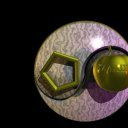
The Dallas Stars 2025 Playoff Thread
GoldAppleCorps replied to Longhorn_Fan68's topic in Other Sports
At this level, precision has to be taken for granted. The Oilers have it, the Stars don't. I mean that Oiler passes are going rink-wide, across zones, and landing in stride on tape. Dallas finds their target, sends it off a step slow, and then it lands on a heel or just between the feet. The receiver has to stop, dig the puck out, and lose sight of the play. Simply, we're taking too long to execute. Even with their lethal speed, the Oilers are going just a bit faster. A couple of times, we've gotten them chasing. They can be had, but we've got to stop thinking and play instinctually as fast as possible. If the turnovers are going to happen anyway, let them happen at full bore - preventing the Oilers from cleanly attacking. The assignment was always to win at least one of this pair. Get home ice back and see what happens. That's still there (remember, we got destroyed by the Avs in the games they won. We won 4 games by barely being ahead), but we can't play timid. If we're not going to clamp down defensively on their talent (almost impossible), then send the puck into our offensive zone. Right now, we're doing not enough of either. Never give up until the handshake line, but tonight determines if we've got a series or just a nice season. -
Some of these are not even close for Auburn #1 is 1 up through 16 #2 won 3&2 #3 is 2 up through 15 #4 is 4 up through 14 #5 is 3 up through 13 As for Texas: #1 is 1 up through 16 #2 is tied through 15 #3 is 4 up through 14 #4 is 2 down through 13 #5 is tied through 12 Need to hold on and win the 2 matches we are up and have one of the tied ones go our way
-
The all lefty starters for Kstate is what makes me think. If they get by UTSA we have not hit lefties well at all. If we have to come back and beat them twice they won’t run out of lefties for us to face. Win Any Way let’s go back to Omaha!
Football ... Basketball ... Baseball ... Other Sports ... Futbol ... 🤫995🤫 ... Gambling ... Movies & TV ... Music ... Hobbies ... Lulz ... Food & Travel ... Daily Texan ... Business and Markets ... Cloak Room ... Help ... For Sale ... Board Discussion ... Subscribe!... Donate!... COOKIE MONSTER!




